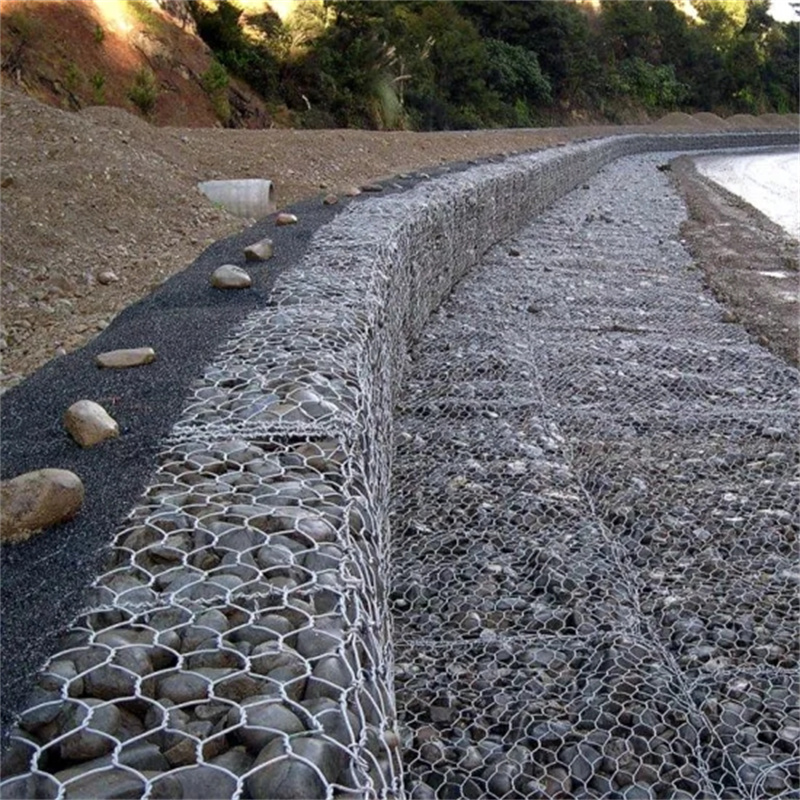ធ្នូ . 19, 2024 02:42 Back to list
gabion baskets price
The Cost and Value of Gabion Baskets
Gabion baskets have gained popularity in various construction and landscaping applications due to their versatility, durability, and aesthetic appeal. These wire mesh containers, typically filled with stones or other materials, serve numerous purposes, from erosion control to decorative landscaping elements. However, one of the primary considerations for anyone looking to incorporate gabion baskets into their project is the cost. Understanding the factors that influence gabion basket prices is crucial for making an informed decision.
What Are Gabion Baskets?
Gabion baskets are rectangular or cubic wire cages made from metal mesh, often galvanized or coated to resist corrosion. They are filled with stones, concrete chunks, or other materials, creating a sturdy and stable structure. Originally designed for civil engineering projects, such as retaining walls or riverbank stabilization, gabions have found their way into residential landscaping, offering both functional and aesthetic benefits.
Factors Influencing Gabion Basket Prices
1. Material Quality The cost of gabion baskets varies significantly depending on the quality of materials used. Higher-quality galvanized steel or PVC-coated wire increases durability and resistance to corrosion, leading to a higher price tag. Investing in quality materials can ensure the longevity of your gabion structures.
2. Size and Dimensions Gabion baskets come in various sizes, and the larger the basket, the more materials are required, which directly impacts the cost. Standard sizes range from small units for garden use to large baskets suitable for construction projects. Therefore, your specific project requirements will play a significant role in determining the cost.
gabion baskets price

3. Filling Material The choice of filling material can also affect overall costs. While stones are the most common filling, different types of rocks, gravel, or even recycled materials like concrete can be used. Some may opt for aesthetically pleasing options, like river stones, which can drive up costs but provide a unique visual appeal.
4. Transportation and Labor The cost of transporting gabion baskets to your location must also be considered. If you're purchasing in bulk, shipping costs can add up significantly. Moreover, the installation may require additional labor, especially for larger or more complex projects. This expense should be factored into your overall budget.
5. Supplier Types Prices may fluctuate between suppliers, including local hardware stores, specialized landscape suppliers, and online retailers. It’s advisable to compare quotes and check for bulk purchase discounts or seasonal promotions.
Average Price Range
On average, gabion baskets can range from $1 to $5 per cubic foot, depending on the factors mentioned above. For example, a standard 2x1x1 meter gabion basket (approximately 2 cubic meters) can cost between $150 and $300, not including the filling material. Specialty designs or larger dimensions may escalate these costs significantly. If you choose to hire professionals for installation, additional labor costs could range from $50 to $100 per hour.
Conclusion
Gabion baskets present an effective solution for a wide array of projects while offering a blend of functionality and visual appeal. When assessing the price of gabion baskets, it’s essential to consider all aspects—materials, sizes, filling options, transport, labor, and supplier choices. By understanding these factors, you can make the best investment for your specific needs, ensuring that your project is both cost-effective and enduring. As the construction and landscaping industries continue to evolve, gabion baskets remain a staple for those seeking innovative and sustainable building solutions. Ultimately, their value extends beyond price, providing durable, eco-friendly structures that enhance any space.
-
HESCO Gabion Baskets for Coastal Erosion Prevention
NewsAug.22,2025
-
Longevity and Durability of River Rock Gabion Walls
NewsAug.22,2025
-
How to Integrate Gabion 3D Walls in Urban Planning
NewsAug.22,2025
-
Reno Mattress Gabion Applications in Civil Engineering
NewsAug.22,2025
-
How to Install Wire Mesh for Gabion Baskets Properly
NewsAug.22,2025
-
Best Materials for Filling a Chain Link Gabion
NewsAug.22,2025
-
Wire Mesh Thickness Impact on Gabion Wall Load Bearing
NewsAug.12,2025






